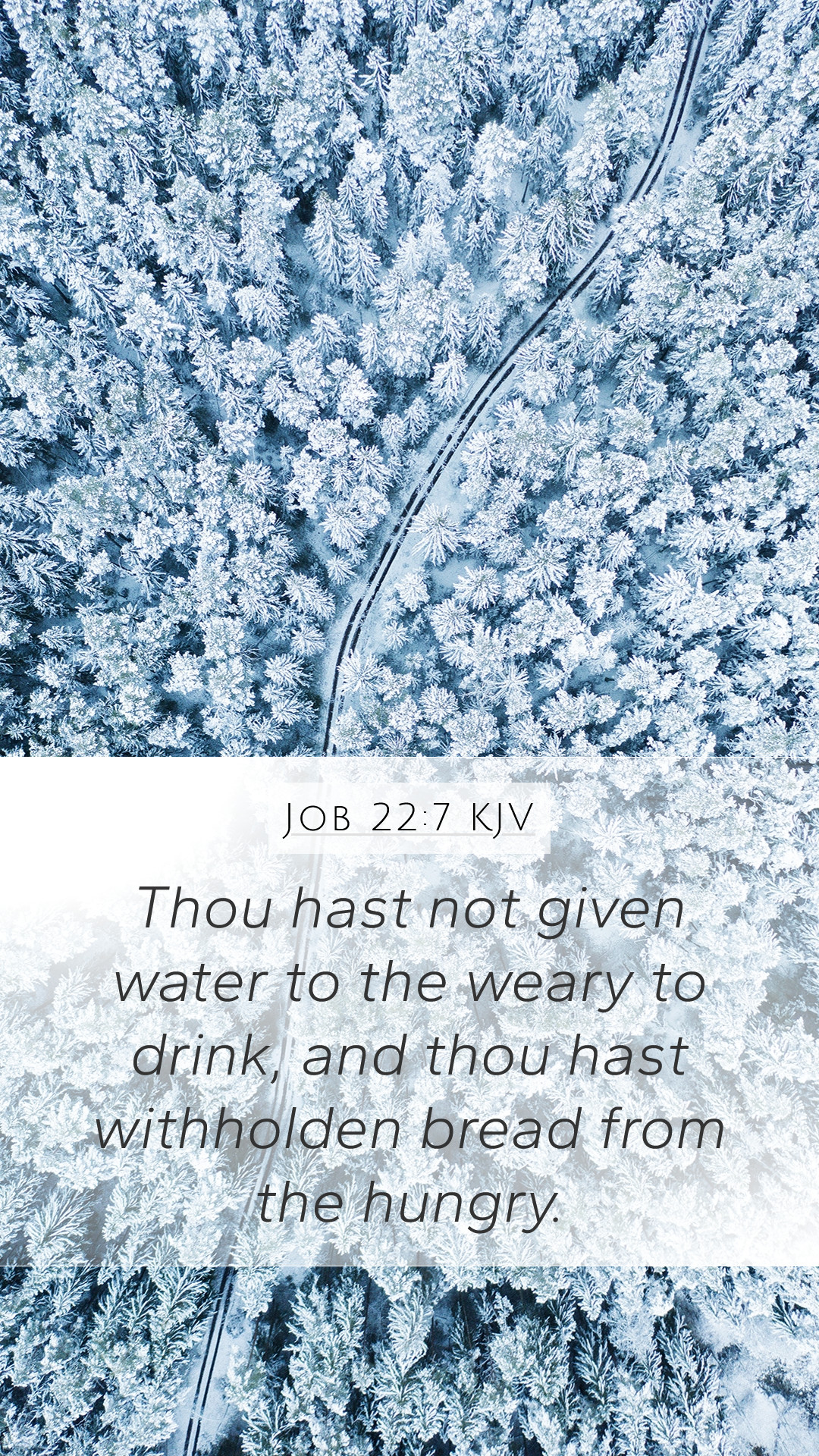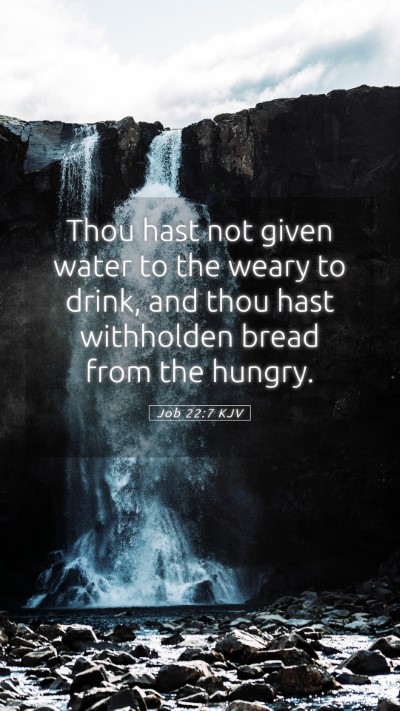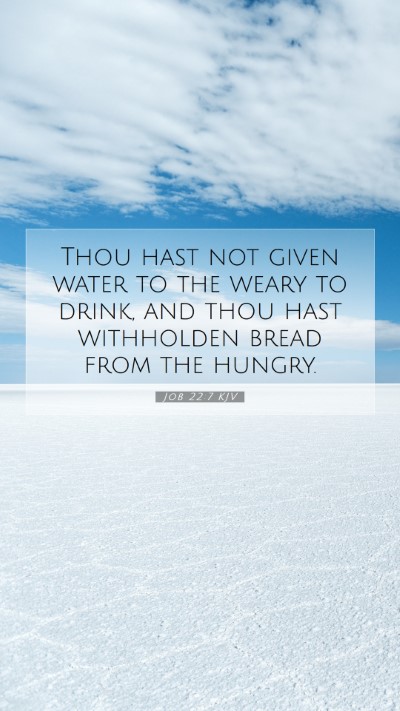Old Testament
Genesis Exodus Leviticus Numbers Deuteronomy Joshua Judges Ruth 1 Samuel 2 Samuel 1 Kings 2 Kings 1 Chronicles 2 Chronicles Ezra Nehemiah Esther Job Psalms Proverbs Ecclesiastes Song of Solomon Isaiah Jeremiah Lamentations Ezekiel Daniel Hosea Joel Amos Obadiah Jonah Micah Nahum Habakkuk Zephaniah Haggai Zechariah MalachiJob 22:7 Meaning
What is the meaning of Job 22:7?
Thou hast not given water to the weary to drink, and thou hast withholden bread from the hungry.
Job 22:7 Bible Verse Meaning
Understanding Job 22:7
Job 22:7 states, "You have taken pledges from your brother for nothing, and stripped the naked of their clothing." This verse is part of Eliphaz's discourse, where he accuses Job of being unjust and calls into question his integrity amidst his immense suffering. The overarching theme in this scripture reflects the moral and ethical obligations one has towards others, particularly in relation to how one treats their brethren in times of need.
Bible Verse Meanings
The meaning of this Bible verse centers around the idea of righteousness and justice. Eliphaz claims that Job's misfortunes are a result of his wrongdoings, specifically hinting at the exploitation of others. Public domain commentaries provide several insights:
Exploitation and Ethical Responsibilities
- Matthew Henry's Commentary expounds on the importance of treating others with fairness. He highlights that the act of taking pledges or demanding collateral from the needy is a severe moral failing, indicating a lack of compassion.
- Albert Barnes adds that such actions not only harm the victim but also reflect poorly on the perpetrator, emphasizing the relational bond within society. The plea for justice is presented as a divine expectation.
- Adam Clarke connects this verse to the broader narrative of human accountability, suggesting that all people are called to uplift those who are weak rather than exploit them for personal gain.
Bible Verse Interpretations
In terms of Bible verse interpretations, multiple layers can be examined:
- This verse showcases the disparity of wealth and power, which is a recurring theme in scripture, emphasizing the need for equity and justice in human relations.
- It serves as a stark reminder of the consequences tied to our actions and their impact on our spiritual standing before God.
- The Scripture warns against the sin of neglecting the moral duties we owe to one another, pointing out that God values ethical conduct just as much as one’s faith.
Understanding Scripture in Context
Through historical context of Bible verses, we see that the time of Job was marked by intense societal and individual struggles where the principles of justice were paramount. Job's friends often reflect the belief in retribution theology, where good is rewarded and evil punished. This outlook profoundly influences their responses to Job's plight.
Application of This Verse
The application of Job 22:7 in one’s life can be significant:
- It challenges individuals and communities to reflect on their treatment of those who are vulnerable or in distress, urging a more humane approach.
- This verse prompts one to consider personal actions and motivations—whether one is contributing to the welfare of others or inadvertently causing harm.
In-Depth Bible Verse Analysis
To engage in in-depth Bible verse analysis, one could explore related themes of justice and mercy throughout the Bible. Eliphaz's accusations may serve as a foil to the biblical narratives that exalt the humble and rebuke the proud.
Additional Cross References
This verse can also be understood in light of several other scriptures:
- Exodus 22:26-27 - Laws on taking clothing as a pledge
- Proverbs 22:22-23 - Warnings against robbing the poor
- Matthew 5:42 - Teachings on generosity
Conclusion
In summary, Job 22:7 addresses vital themes of ethical conduct within the community, God’s justice, and the moral imperatives humans carry towards one another. Understanding such Bible verse commentary can enrich one's perception of Scripture, helping to foster a more compassionate and just society.


